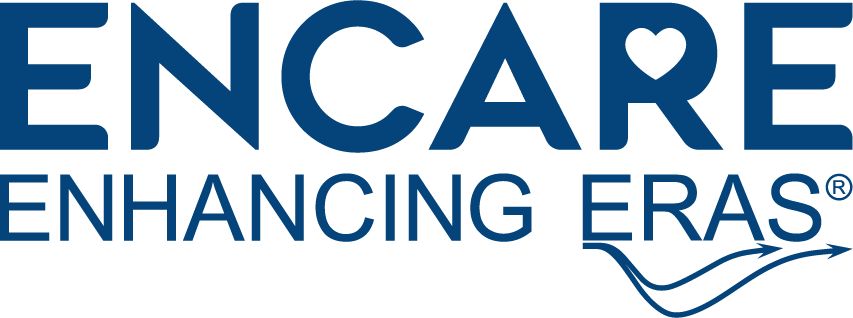Frequently Asked Questions (FAQ)
A: If you are new to the ERAS® Protocols, we recommend that you and your perioperative team all attend the ERAS® Implementation Program (EIP) offered by Encare.
The EIP is a comprehensive training program which is suitable for your whole perioperative team, running over an 8 to 10-month period and where the use of the ERAS® Interactive Audit System (EIAS) is an integral part.
The ERAS® Implementation Program is an ERAS® specific training program designed and customized in such a way that you and your perioperative care team will find it easy to implement, reach and maintain at a high compliance level across the different ERAS® Protocols that are available. The focus is on building well-functioning teams from various units involved in surgical care, introducing highly specific changes to current routines to conform to best practice and providing the tools to monitor and analyze the effects of those changes through the ERAS® Interactive Audit System (EIAS).
The program follows a specific series of 4 scheduled workshops mixed with homework periods for projects to be carried out in the hospital over a period of 8-10 months. Everything is done with the support of Clinical Experts and ERAS® Coaches in the ERAS® Society. The program uses EIAS as a key vehicle to help monitor, control and change outdated clinical practice to that of evidence-based medicine
The EIAS is a web based, interactive, data entry and analysis software used to facilitate implementation of and monitor compliance to the ERAS® Protocols. The tool is a quality and decision support system, for use by the healthcare provider to improve its patient care work processes, and ensuring compliance to the ERAS® Protocols, once implemented, is upheld. The EIAS provides immediate feedback regarding any deviation from best practice. Further the EIAS may be used as a data collection tool for research purposes.
A key focus of the system is ease of use to ensure widespread dissemination. Today, hospitals throughout the world use this system to continuously audit their progress and help them maintain the improvements over time. See all ERAS® Qualified Centers.
A: To use EIAS for analyzing data, the hospital staff first collect and store a wide array of relevant information during the patient’s perioperative journey, from pre-admission to discharge and follow-up. The type of information collected is specified in the guidelines and is relevant due to its role in enhancing recovery after surgery. For this reason, the data collected in the EIAS is generally organized around the perioperative process.
- Admission information. This is where relevant demographic information is collected as well as information on pre-existing conditions that may affect patient outcomes. Examples of these include admission date, year of birth, height, weight, BMI, nutritional status, alcohol usage, presence of heart disease, or pulmonary disease.
- Operation. This section covers the period immediately preceding the start of the operation, the operation itself, and information on anesthesia/fluids. Examples of these include type of procedure, duration of procedures, surgical approach (such as laparoscopic or open), type of anesthesia used, administration of PONV prophylaxis, volumes of IV fluids.
- Recovery. This is where information on fluids, post-operative gut function, mobilization, post-operative pain, and nausea are documented.
- Discharge. Any complications during the primary hospital stay are documented here as well as discharge information.
- Follow-up. Complications that occur after discharge are documented in this section.
A: Licensed hospital staff of the EIAS are given access to the software for data entry as well as accompanying documentation and tutorials. Most of the information required to be registered into EIAS can be found in existing patient records in the electronic health record systems (EHR), patient diaries or similar systems. Encare is currently working on integrations with some of the largest EHR systems.
A: Once the data is registered into EIAS, the licensed hospital staff can have access to the Reports section of the EIAS and compare compliance to the ERAS® Protocol and associated outcomes. Watch this video this video and see how one can analyze their data efficiently, and in-real time, with the new generation of the EIAS.
- Bariatric
- Breast Reconstruction
- Colorectal
- Gynecology
- Head & Neck
- Hip & Knee Arthroplasty
- Liver
- Pancreas
- Thoracic-Lung
- Urology/Cystectomies
A: The program runs for a period of 8-10 months. The program follows a specific series of 4 scheduled workshops mixed with homework periods for projects to be carried out in the hospital.
A: Involving the multi-disciplinary core team, the program follows a specific series of 4 scheduled seminars and workshops mixed with homework periods for projects to be carried out in the hospital. Everything is done with the support of Clinical Experts and ERAS® Coaches in the ERAS® Society. The program uses the ERAS® Interactive Audit System (EIAS) as a key vehicle to help monitor, control and change outdated clinical practice to that of evidence-based medicine.
A: The ERAS® Implementation Program (EIP) is led by leading clinical experts and ERAS® coaches representing the ERAS® Society. These experts have a focus on the relevant ERAS® Protocols and change management.
A: Implementing ERAS® Protocols proactively can lead to improved patient outcomes and significant cost savings. Encare’s ERAS® Interactive Audit System (EIAS) solution is designed to be user-friendly and straightforward, with minimal disruption to existing workflows.
Encare’s ERAS® Interactive Audit System (EIAS) solution is designed to provide a significant return on investment by supporting the healthcare provider teams in their work processes to reduce the number of complications and readmission rates in connection with surgery, hence resulting in reduced length of stay.
While implementing ERAS® may seem like a significant time investment, EIAS streamlines the process and allows hospitals to save time in the long run by automating tasks, providing real-time feedback, and facilitating communication between team members.
Encare’s latest generation of the ERAS® Interactive Audit System (EIAS) is designed to be flexible and customizable to meet the current and future needs of each hospital. EIAS has a comprehensive set of features that have been developed in collaboration with leading ERAS® experts and healthcare professionals. We welcome feedback and suggestions for new features and can work with hospitals to develop tailored solutions. Contact us here .
To ensure you have implemented ERAS® to its full potential in your hospital, you should be able to continuously measure your compliance to the various ERAS® Guidelines. Experience shows that hospitals may believe they have a robust ERAS® program in place, yet compliance can often be lower than expected.
Encare’s ERAS® Interactive Audit System (EIAS) will enhance the implementation process by providing real-time feedback and analytics to optimize outcomes. EIAS offers benefits such as automating tasks, facilitating communication between team members, and providing feedback to continually improve ERAS® implementation. EIAS benefits include data entry, analysis, reporting, and access to the ERAS® community.
Encare’s EIAS solution will provide real-time feedback and analytics to help hospitals monitor the compliance to the ERAS Guidelines and identify areas of non-compliance and continuously improve ERAS® implementation.
Furthermore, the ERAS® Implementation Program (EIP) is the perfect complement to the ERAS® Interactive Audit System, adding substantial value to setting up your ERAS® best practice, whether for the first time or when expanding your implementation. By providing training to your healthcare professionals through the EIP, we can help your organization to stop silo thinking and individual processes and instead work in multidisciplinary and multi-professional teams to compare and improve procedures.
In the initial phase of ERAS® Implementation Programs (EIP), participating hospitals input historic patient data into the ERAS® Interactive Audit System (EIAS) to see their total ERAS® compliance. Experience shows that this number is many times lower than anticipated by the teams. However, with guidance from clinical experts and coaches from the ERAS® Society throughout the EIP, the team continues to improve processes and compliance improves and usually doubles by the end of the implementation program.
Experience shows that by not continuing to register data, follow up on data, and audit data, then compliance tends to drop and thereby also length of stay increases. In order to sustain good results, it is important to continuously monitor and follow up.


